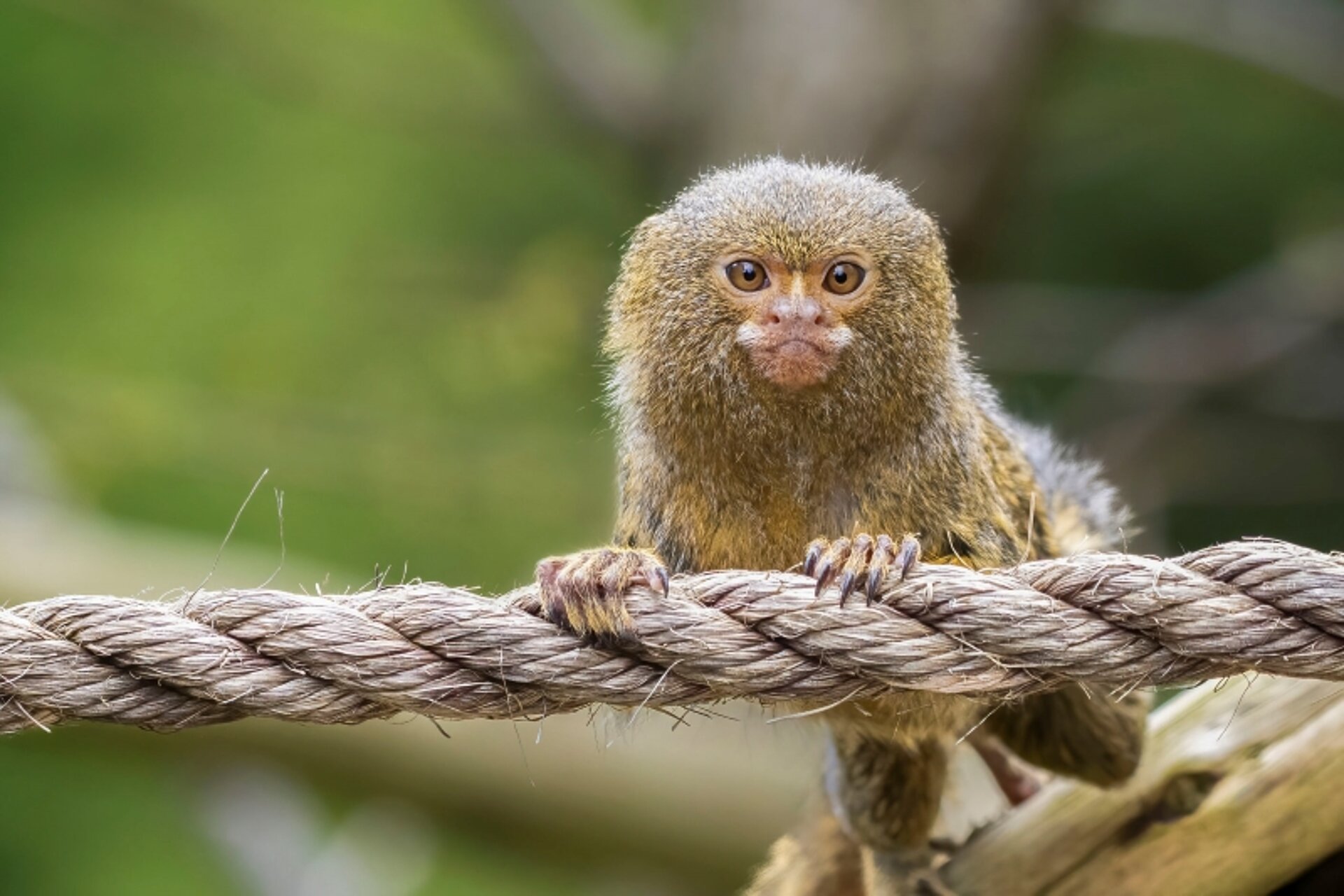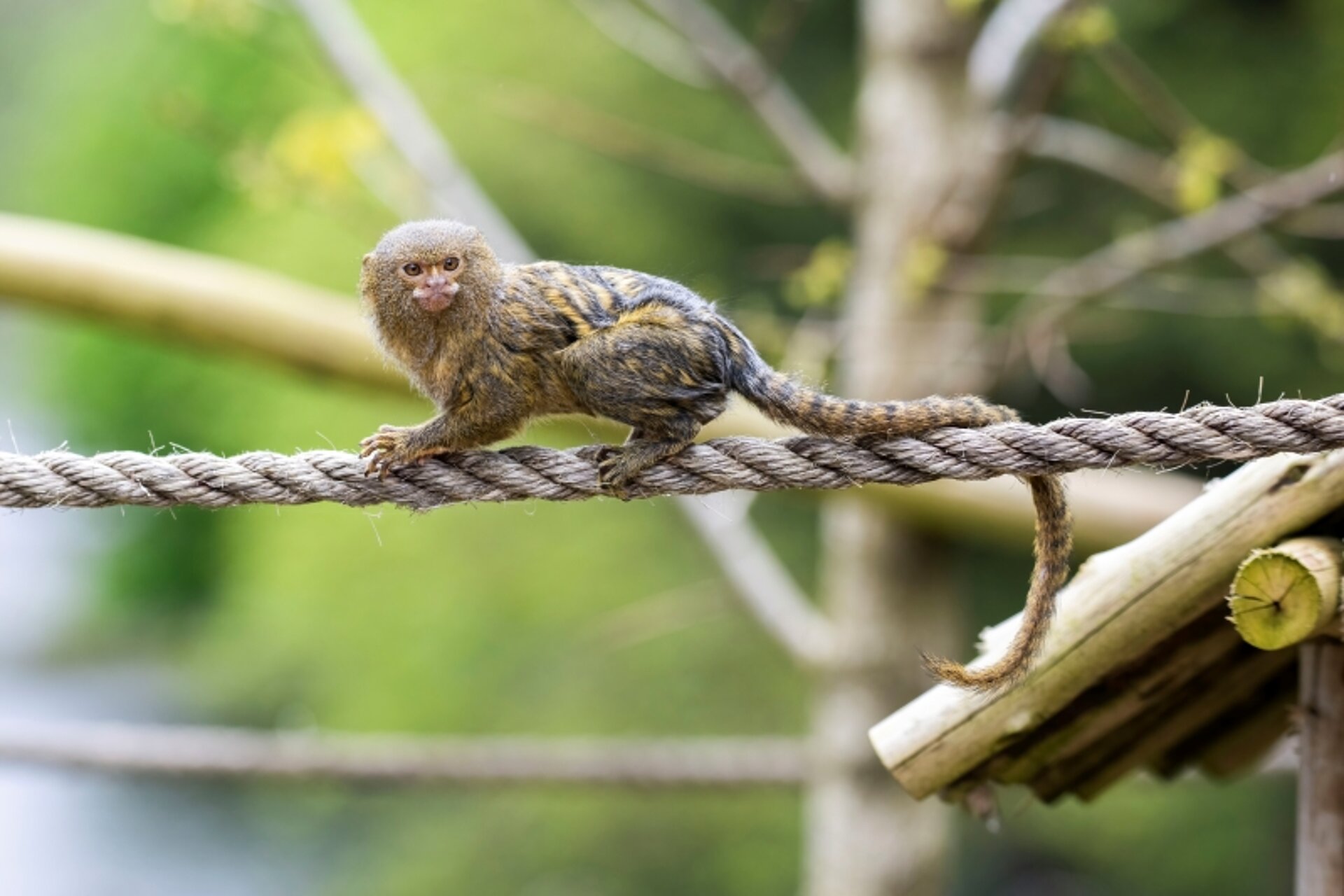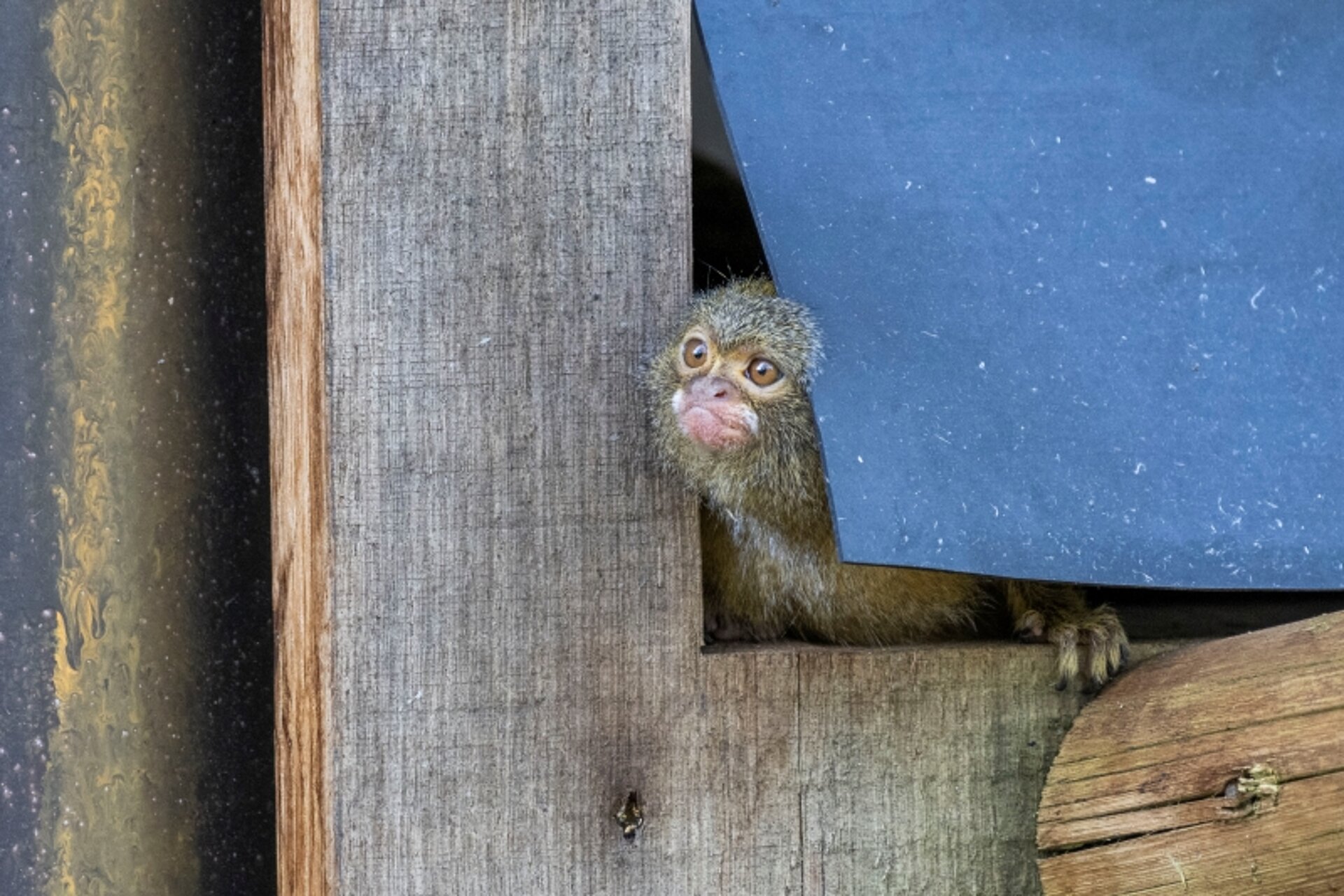
Safari Park Needs Help Naming Mini Monkeys
The warmer weather has meant that our newest species – pygmy marmosets, have been able to venture outside for the first time and now some of them need names!
The six tiny monkeys took their first tentative steps into their new outdoor habitat on Friday morning, eagerly watched by their keepers, who have been caring for them since their arrival.
Three of the females are named Eva, Dolores and Pipa, but we are welcoming guests to help name the other three, by suggesting names on our Facebook and Instagram page.
We have a unique way of naming animals, as all animals born in a certain year are assigned a name starting with a letter for that year. Therefore, the female born in 2021 must start with ‘L’ and the two females born in 2022, must start with ‘K’.
Head Keeper, Amy Sewell, said, “We were thrilled to have welcomed a brand-new species to the Park last year, especially as we have never housed pygmy marmosets before, in our 51-year history. These tiny mammals are the smallest monkey to be found in the world. Due to this fact, they have been hunted for the pet trade and mixed with habitat destruction, it is thought that the wild population has been declining. This species is now classed as ‘vulnerable’ in the wild.
“The six females arrived last October, from our sister attraction, Drayton Manor Resort, and eagle-eyed guests may have already spotted them in their cosy indoor housing. We are thrilled as the weather is now getting warmer, that our marmosets are venturing into their outside habitat. We would love for our guests to get involved and suggest names for the three that are unnamed. We hope our guests will enjoy watching our troop as much as we do.”
As the world’s smallest monkey, these miniature primates only weigh about 120-130g – around the same weight as a smartphone.
Baby pygmy marmosets are small enough that they could cling on to one human finger, which has gained them the nickname ‘finger monkey’, which may sound cute, but has in fact made them attractive in the exotic pet trade.
Wild pygmy marmosets have been hunted and caught from the forests in the Amazon Basin in South America and alongside these areas suffering from deforestation, has caused their numbers to decline by 30% over a period of three pygmy marmoset generations.
Trees are incredibly important to these animals, as they live in them and also rely on them for food, as they gnaw holes through the bark, to feed on the gum and sap which makes up over half of their diet.
Keepers hope that by introducing guests to this endearing species, they can educate them on the threats the wild counterparts of pygmy marmosets face.
The pygmy marmosets can be seen in Marmoset Mischief, located in the Safari Walk area of the Park which is included in the admission charge.


